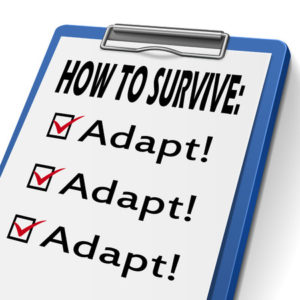I distinctly remember the performance appraisal that was a game changer in my management career. I was only a few years into the position and my manager suggested that an area I should focus on should be “people management” and dealing with difficult and challenging conversations. No sooner than I inked it, the experiences came fast and furious. It goes to show you how powerful it is when you ink something you want to accomplish.
Acknowledge Your Discomfort
 My stomach was in knots as I approached my first conversation. It is not like I have not had a difficult conversation before it was that this one seemed so formal. Just the thought of it made me uncomfortable. I was reminded by my manager that no one likes to have these conversations. The discomfort is real for both people in the conversation. Here I was being pushed out of my comfort zone. There is no doubt that these conversations cause discomfort. They are necessary for establishing expectations, clearing up misunderstandings, and aligning with your values. You need to learn how to be uncomfortable with the uncomfortable. It will challenge and stretch you.
My stomach was in knots as I approached my first conversation. It is not like I have not had a difficult conversation before it was that this one seemed so formal. Just the thought of it made me uncomfortable. I was reminded by my manager that no one likes to have these conversations. The discomfort is real for both people in the conversation. Here I was being pushed out of my comfort zone. There is no doubt that these conversations cause discomfort. They are necessary for establishing expectations, clearing up misunderstandings, and aligning with your values. You need to learn how to be uncomfortable with the uncomfortable. It will challenge and stretch you.
Make a Game Plan
Since that time, I have had many of these conversations. I still carry some discomfort. How can you not people and emotions are involved? I now have a game plan. A plan which helps me get focused. This plan also helps me remember one of the most important things – at the end of the day, we are all people doing the best that we can with what we know and the experiences we have had. You can create your own plan for managing difficult conversations.
Prepare for the Conversation
The steps in dealing with conflict or having a difficult conversation are fairly simple but not always easy. Conversations can get heated so you want to make sure that you are mentally prepared. Preparation begins with knowing yourself or what we refer to self-awareness in the emotional intelligence world.
Ask yourself these questions:
What makes this conversation difficult?
What emotions has this situation triggered for me?
What do I think they are thinking or feeling?
What assumptions am I making?
What are the facts?
What information am I missing?
What are the expectations?
Did the person have the tools and resources they needed to be successful? If not, what do they need to feel supported?
Write Out a Script
Emotions can get charged in these conversations and sometimes we forget what we want to say. Write out what you would like to say. What do you want to know? Acknowledge that the conversation is difficult for you. It may be difficult because someone may have violated your trust or you’re disappointed in the actions the person took. You may be worried about being judged or criticized and want to avoid having the conversation. You want to ask more questions versus only telling them how things should be. Come from a place of curiosity and learn more about how they see the situation.
Use the TEACHER™ method:
Thank the person for meeting with you.
Explain the reason why you are having this conversation.
Acknowledge that it is a difficult conversation and express how you are feeling.
Call on them to share their perspective and express how they are feeling.
Hold yourself or the other person accountable for how their actions and behaviours have impacted the situation and/or event.
Express gratitude for the meeting.
Resolve to move toward a positive outcome.
Open Up the Conversation
Have the conversation in a timely manner so it is relevant and does not have a greater  impact than it needs to. Some people have some guilt about having these conversations because the outcomes are not always desired. It is not unusual to feel this way as we are often talking about people and their livelihood. The outcomes may lead to discipline or termination. Take note that not all outcomes are bad. Some of the conversations that I have gone into have not been as challenging as I had anticipated because the person has self-reflected and had self-awareness into their actions and behaviours. Sometimes they have already taken steps to make improvements; this made these difficult conversations feel a lot more simple and easy.
impact than it needs to. Some people have some guilt about having these conversations because the outcomes are not always desired. It is not unusual to feel this way as we are often talking about people and their livelihood. The outcomes may lead to discipline or termination. Take note that not all outcomes are bad. Some of the conversations that I have gone into have not been as challenging as I had anticipated because the person has self-reflected and had self-awareness into their actions and behaviours. Sometimes they have already taken steps to make improvements; this made these difficult conversations feel a lot more simple and easy.
You need to learn how invested and motivated the person is to meet the expectations. If they are not invested or motivated, they may no longer be a right fit. You may want to ask them directly if they believe it is or not. Let them reflect and determine if it is or isn’t. If they are unsure, you may need to make the decision for them. Keep in mind these decisions are made for them NOT to them. Although, they may not feel it at the time; it often is best for all of those involved. Bridges of communication are meant to be built not torn down as you never know when a relationship will be needed or nurtured in the future.
What we need to be reminded of is that we are all human and can make mistakes. We can learn from mistakes and make better choices. You cannot make someone do something. You can plant the seed of change by helping the person you are having the conversation with become more aware.
When I am faced difficult conversations, I learn more about myself and others and how each situation needs to be treated individually even with a plan. You can successful handle difficult conversations; it all starts with inking it on paper. Once you do, there is no turning back. Prepare to be uncomfortable and know that you are not alone. People are people and all conversations start with respect.
DEBRA KASOWSKI, BScN CEC is an award-winning best-selling author, transformational speaker, blogger, and Certified Executive Coach. She has a heart of a teacher and is certified in Appreciative Inquiry and Emotional Intelligence. Her writing has been published in a variety of print and online magazines. Debra Kasowski International helps executives, entrepreneurs, and organizations boost their productivity, performance, and profits. It all starts with people and passion. Sign up for the Success Secrets Newsletter and get your free mp3 download today! www.debrakasowski.com

 The one constant in everyone’s life is change. We are all faced with changes and challenges on a day-to-day basis. One of the greatest challenges that leaders within organizations face is being able to keep up with their workloads while putting out fires that seem to arise. They are taken away from some of their critical work to focus intently on performance issues. Managing people and working with people can sometimes be draining especially when you’re faced with resistance and lack of awareness. Sometimes it feels like no matter how much effort you put into something that you are unable to achieve what you hope to. At times this can be disheartening for a leader to lead because they may lose sight of their focus and the meaning of the work that they were driven to do. Don’t give in and don’t give up! Adapt!
The one constant in everyone’s life is change. We are all faced with changes and challenges on a day-to-day basis. One of the greatest challenges that leaders within organizations face is being able to keep up with their workloads while putting out fires that seem to arise. They are taken away from some of their critical work to focus intently on performance issues. Managing people and working with people can sometimes be draining especially when you’re faced with resistance and lack of awareness. Sometimes it feels like no matter how much effort you put into something that you are unable to achieve what you hope to. At times this can be disheartening for a leader to lead because they may lose sight of their focus and the meaning of the work that they were driven to do. Don’t give in and don’t give up! Adapt! Leaders know that it’s important to build and nurture a network of relationships before you need them. When you are in crisis or faced with the challenge, you need to have that support immediately and if you don’t have it is more challenging to get through the tough times. When you build relationships, people are quick to reciprocate and support each other lessening the challenges.
Leaders know that it’s important to build and nurture a network of relationships before you need them. When you are in crisis or faced with the challenge, you need to have that support immediately and if you don’t have it is more challenging to get through the tough times. When you build relationships, people are quick to reciprocate and support each other lessening the challenges.




